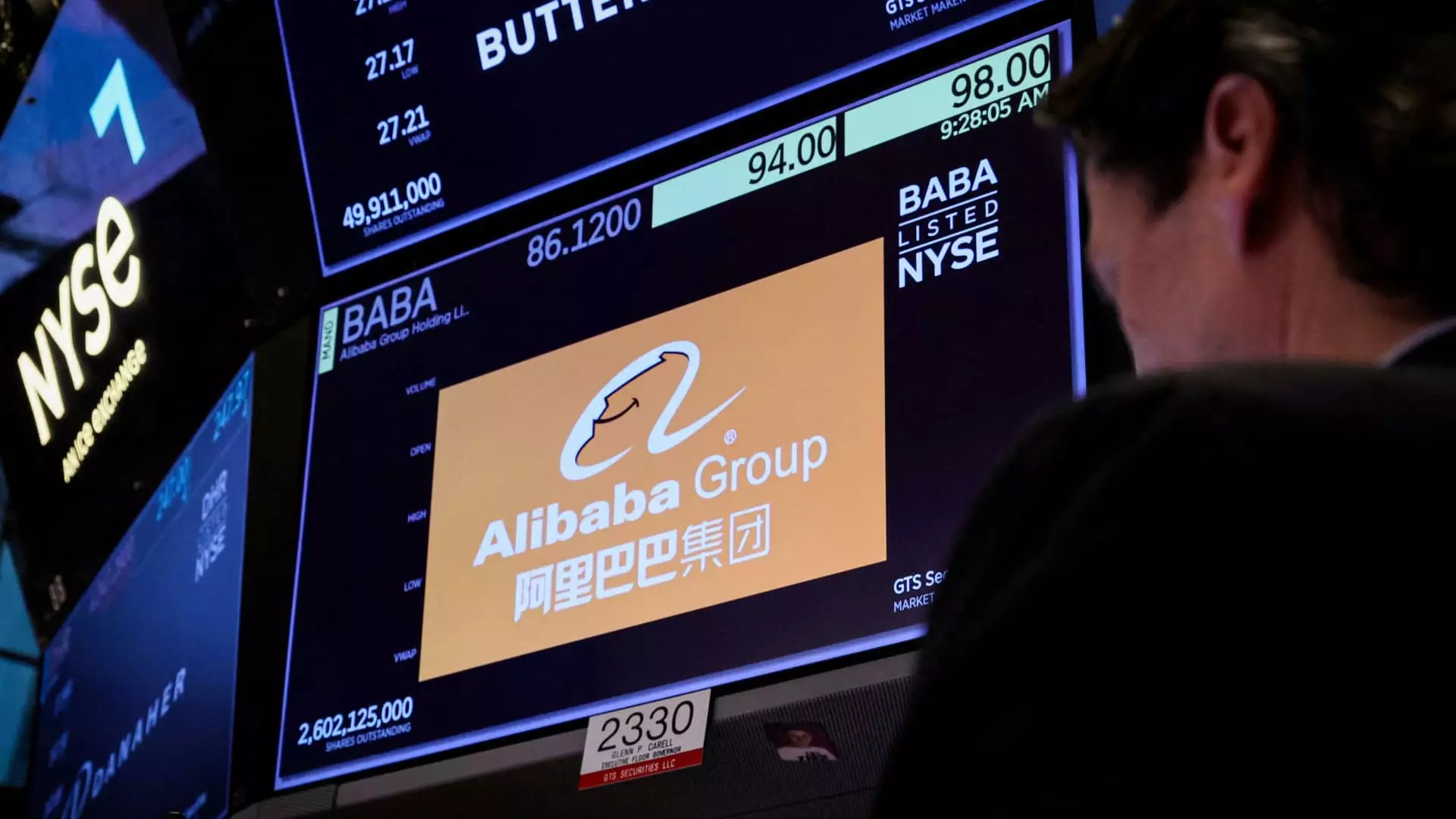Alibaba is making headlines once again, showcasing an impressive rebound in its stock performance. As of February 2025, shares listed in the U.S. have surged nearly 70%, primarily attributed to the company’s strategic investment in artificial intelligence (AI). This turnaround marks a significant change in sentiment for the e-commerce giant, which has been grappling with challenges in a competitive market. In this article, we will delve into the factors driving Alibaba’s growth, the significance of its AI developments, and the future outlook from various investment perspectives.
One of the most striking elements of Alibaba’s recent performance is its revenue from AI-related products, which has reportedly increased at a remarkable triple-digit rate for six consecutive quarters. Such growth highlights the company’s aggressive push into AI technology, showcasing their Qwen AI model as a formidable competitor to established players like DeepSeek. This innovation not only underscores Alibaba’s commitment to staying relevant in the tech landscape but also indicates its potential for future growth as AI applications become increasingly integral to various sectors, from e-commerce to cloud computing.
Moreover, Alibaba’s successful partnership with iPhone distributors in China emphasizes its strategic positioning within the rapidly expanding AI market. As consumer electronics continue to integrate AI-driven features, Alibaba stands positioned to capitalize on this trend, leveraging its established e-commerce infrastructure to drive product sales. Market analysts are increasingly optimistic about Alibaba’s trajectory, with firms like Jefferies setting ambitious price targets—$156, illustrating the potential for continued upward momentum.
The competitive landscape in the Chinese tech market is evolving, with various firms jockeying for dominance as AI solutions gain traction. Notably, Alibaba’s rivals, such as Tencent and Baidu, remain pertinent players. While Alibaba has reclaimed a leading position, analysts suggest that a rotation among investors may not be necessary yet. Noteworthy is the observation from JPMorgan’s internet analyst Alex Yao, who indicated that both Tencent and Baidu could experience AI-driven growth, albeit with differing risk profiles. This illustrates the nuanced dynamics in the sector, where opportunities and pitfalls can vary drastically underpinned by each firm’s strategic focus.
Despite the frenzy surrounding AI investments, the notion that crowning trends are isolated to specific companies is misleading. According to UBS research, Alibaba has recorded the highest crowding score among major Chinese internet firms, which points to the sustained interest in its stock. However, it also suggests that this interest may not be as pronounced as in the U.S., where AI-related names have witnessed a more robust surge in engagement over recent years.
The diverse opinions on Alibaba’s future offer a comprehensive view of the company’s position within the financial landscape. Many investment firms have issued buy ratings, recognizing the potential for growth driven by AI, yet cautionary perspectives persist. Notably, Morgan Stanley’s equal-weight rating reflects a measured outlook. Their concerns about rising capital expenditures—reported at 11% of revenue—signal potential pressures on future profit margins. This often-overlooked metric is crucial for understanding the long-term viability of aggressive growth strategies.
Furthermore, ongoing risks, such as weakened consumer demand and sluggish enterprise digitalization, represent significant hurdles. These factors not only affect Alibaba but also reflect broader economic conditions in China. While Alibaba’s innovations may drive short-term revenue growth, sustainable profitability remains a question that investors need to consider.
Alibaba’s resurgence is not merely a reflection of its triumphs in AI but also indicative of shifting market dynamics and investor sentiment. While optimism abounds regarding its innovative capacity and revenue potential, investors must be vigilant about the accompanying risks. The road ahead for Alibaba appears promising, yet it will require navigating through a complex web of market challenges and evolving consumer preferences. Ultimately, Alibaba’s ability to maintain growth hinges on its adaptability and willingness to innovate in a landscape defined by rapid change and competition. As the company rides the wave of AI, the tech giant must keep a steady focus on its core e-commerce roots while continuing to foster technological advancements that drive its future success.


Leave a Reply